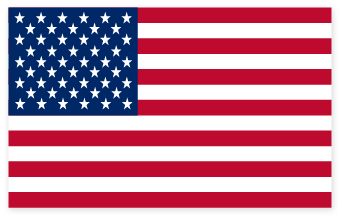If you ate a Kazayit of bread and other stuff and you are still hungry then Birkat Hamazon is rabbinic therefore if you are in doubt don’t make a new bracha. If you ate enough to fill yourself then you would have to. There are some opinions that if you did not drink anything and you are thirsty still then Birkat Hamazon is only Rabbinic as well. Therefore, since it is a Safek whether you are obligated from the Torah you should have said Birkat Hamazon in the bus.
Explanation:
The Gemara in brachot 21a : Rav Yehuda said how do I know Birkat Hamazon is from the Torah as the passuk says, “V’Achalta V’ Savata Uverachta (And you ate, became full and said a Bracha.)” From where we know that making a bracha before is from the Torah, “Ki Shem Hashem Ekra…”
This is the source that Birkat Hamazon is Torah law. There is an argument how much does one have to eat in order for there to be a Torah obligation to say Birkat Hamazon. R’ Meir and R’ Yehuda argue whether one needs to eat a Kazayit (R’ Meir) or a K’beitzah (egg) which is the opinion of R’’ Yehuda in order to make a Zimun.
The Gemara later 49b explains the argument:
They argue about the understanding of pesukim. R’ Meir understood, Vachalta is eating, and Vsavata is drinking and Achila is a Kazayit. R’ Yehuda understood Vachalta Vsavata is eating which satisfies and how much is that? a K’beitzah.
It seems the argument between R’ Meri and R’ Yehuda is applies to what the amount to say Birkat Hamazon is.
The Gemara on page 20asya:achild can say Birkat Hamazon or his father( if he does not know how to.)What is called obligated? Rather we are discussing someone e who ate less than a amount required by the Torah.
(Kazayit or a Beitzah but if it and if you ate those amounts you are only obligated Rabbinically therefore a child may make the bracha for him-Rashi.) Rashi says that the amounts k’zayit or Beitzah are too obligated rabbinically.
Tosfot writes in the name of the Ri these pesukim are not actual sources and the Torah requires actual satisfaction (Sviah). This sounds like Rashi that the shiurim of R’ Meir and R’ Yehuda are not amounts for a Torah obligation. So understood the Rambam (Brachot 5:15).
The Raavad though understood that the amounts of R’ Meir and R’ Yehuda from the Torah and Sviah is not literal. The Gemara where the child says the bracha for his father is that his father repeats word for word after him. There ore according to the Raavad (and the Rashba as well) Birkat Hamazon is always from the Torah.
The Shulchan Aruch (OH 186:2) rules like the Rambam one needs to eat until full to have Torah obligation. As he says: A child is obligated from the Rabbis to train him to say Birkat Hamazon and he may say the bracha for his father, the father did not eat his fill. “
So explains the Mishna Berura (184:22) the Shulchan Aruch in 197:4, in the case of someone who gets full from eating other things during the meal, the Pri Megadim writes that one needs to be satisfied from bread itself. The Biur Halacha explains that he does not refer to foods which are eaten together with bread, but other foods.
R’ Moshe Feinstein (IM OH4:41) writes that if one ate less than a Kazayit of bread and a lot of other stuff he does not need to say Birkat Hamazon. Eating less than a kzayit is not considered eating.
It comes out that only if one eats a Kazayit of bread with food which is eaten together with bread is one obligated from the Torah to say Birkat Hamazon.
The amount to be considered satisfied changes from person to person. The Biur Halacha says that sick or old person who are full with a Kazayit is definitely obligated from the Torah.
The Rema (197:4) brings the opinion of the Mordechai that one who was thirsty before he said Birkat Hamazon and didn’t drink his bracha is rabbinic. The Chazon Ish adds even if he drinks afterwards, he might create an obligation to say Birkat Hamazon from the Torah. The Yalkut Yosef does not follow that opinion but he says that one should not put yourself into a doubtful situation.
Therefore, according to the Rema if one was thirsty and ate his fill and he is unsure if he said birkat hamazon then he should say Birkat Hamazon again.



